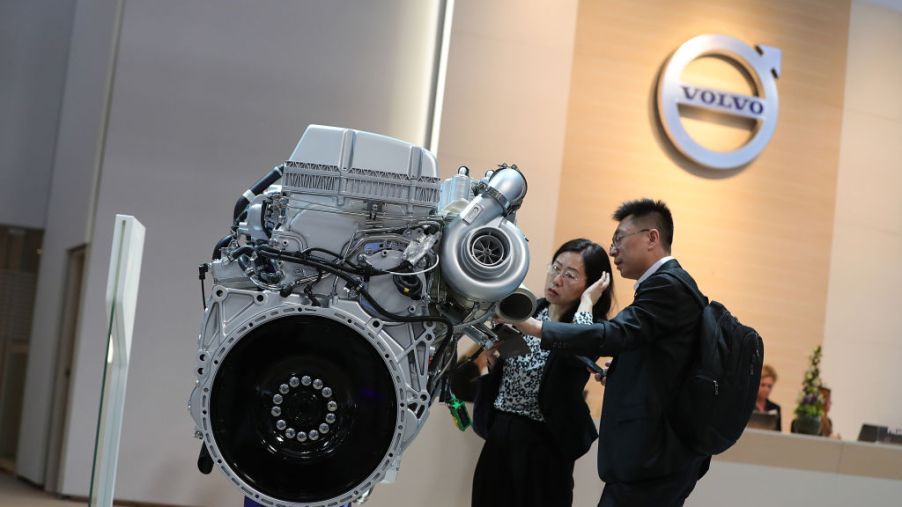
Is a Diesel Pickup Better Than a Gas Pickup Truck?
Truck buyers must make a slew of decisions about cab configuration, bed size, towing capacity, and more. Then there’s a choice that can really give you pause: gas or diesel? Each engine type has its own loyal camp among truck owners. One obvious advantage is diesel’s lower impact on the environment.
But diesel can offer further benefits to truck owners, depending on their needs. U.S. News & World Report compares the benefits and tradeoffs of diesel pickup trucks versus gas ones.
Horsepower and torque
Generally, a gas truck that shares about the same amount of displacement with a diesel truck will have about 25 more hp. Gas trucks lead slightly in peak power, which gives them a competitive edge on the highway.
But horsepower doesn’t help truck owners who need hauling and towing capabilities. Torque does. With a few exceptions, diesel pickups clearly have the edge over their gas counterparts here.
The number of lb-ft prevails over sheer horsepower because it defines payload and towing capacities. Diesel trucks yield at least 300 lb-ft of torque, so drivers who tow or haul frequently should consider them over gas models.
Diesel pickup trucks’ fuel usage
In the past two decades, diesel trucks have offered as much as 30% better fuel economy over gas-powered ones. Yet, because newer gas engines have incorporated ideas from diesel engine technology, they have improved gas mileage that’s starting to match diesel.
Gas engines like the Ford EcoBoost, for example, use turbochargers that increase horsepower while maintaining a lower displacement. Other techniques used to enhance fuel economy in gas engines include direct fuel injection, cylinder deactivation, and engine parts made from high-strength steel and aluminum.
New transmission technology also aids in narrowing the gas-mileage gap between diesel and internal combustion engines. Manufacturers have recently increased the number of gears on trucks with automatic transmission to as many as 10.
With more gears, the truck’s engine has a wider ratio between them, which helps it operate most efficiently. As powertrain technology continues to advance for gas engines, there won’t be much difference between them and diesel engines for optimal fuel economy.
Tradeoffs in cost and convenience
The undeniable benefits of diesel trucks are offset by higher price tags. They’ve cost more than gas trucks in the past, and they will most likely be more expensive in the future. Buyers should expect to pay at least $2,000 more for diesel options, with the most significant price gap between gas and diesel in heavy-duty models.
But a higher sales price is only part of the financial picture for diesel trucks. One upside is that they are easier on owners’ budgets because they burn less fuel than gas trucks — at least for now. It’s also easy to find diesel fuel at gas stations. And it’s often less expensive than gas.
For the most part, the cost of running a diesel truck is budget-friendly. Nevertheless, a hidden drawback to a diesel truck involves cold winter weather. The colder it is, the harder it can be to start a diesel engine.
Some manufacturers offer trucks that come with factory engine heaters. Buyers can also buy them retail. This can be a great solution to the problem, but you’ll need to park your truck near an electrical outlet in order to use an engine heater.
Is the truck you want available as a diesel?
Taking a survey of a few of your local dealerships right now would show you that they have more gas than diesel trucks. Take heart, though, because most manufacturers do offer diesel engines on their popular models.
If you need a heavy-duty truck, you’ll probably have better luck, because the manufacturers that make them focus on the benefits of diesel engines. With such a range of trim levels among trucks these days, you can customize one to suit your needs.


